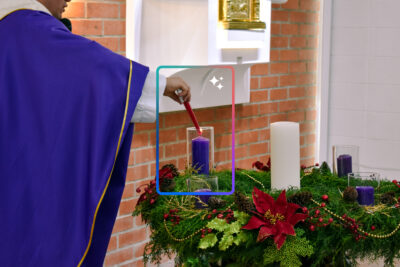FAQs
What skills do pastoral leaders need to manage a parish effectively?
Pastoral leaders rarely talk about “management,” yet they live it every day: guiding staff, caring for parishioners, planning ministries, and overseeing operations. Strong communication, emotional intelligence, and a collaborative approach go a long way. Many leaders also rely on technology that simplifies parish administration so they can focus more deeply on pastoral care. Platforms like ParishStaq support communication, volunteer coordination, and sacramental visibility, all from a single ecosystem.
Why is church history relevant to parish leadership today?
Church history offers context, identity, and wisdom. Understanding how Catholic dioceses, religious organizations, and parish communities have grown over centuries helps today’s leaders navigate change, cultivate unity, and steward their local mission with greater confidence. It also reminds leaders that administration isn’t separate from mission—it’s part of how the Church has always cared for its people.
What does “people-centered leadership” look like in a Catholic parish?
At its core, people-centered leadership mirrors Christ’s example of accompaniment. It means prioritizing relationships, listening to parishioners, investing in staff formation, and making decisions rooted in the real needs of your community. Pushpay’s engagement tools help leaders stay connected with parishioners, send timely communication, and follow up with those who may be drifting away.
How can a parish strengthen youth ministry through better communication and planning?
Youth ministry thrives when communication is easy and relationships feel personal. With centralized communication tools—like in-app messaging, SMS reminders, and interactive polls—ministry teams can reach teens and parents more consistently. Event check-ins, group messaging, and follow-up workflows within ParishStaq help youth ministers keep track of involvement, celebrate milestones, and encourage ongoing formation.
How can archdioceses support consistent administration across multiple parishes?
Archdioceses manage significant complexity. To support consistency and collaboration, leaders often lean on centralized systems that offer diocesan-level visibility. ParishStaq provides shared reporting, standardized communication tools, sacramental visibility, and donor insights across all parishes within the archdiocese, while still allowing each parish to maintain its own workflows and autonomy.
What tools help deacons and lay leaders serve more effectively?
Deacons, business managers, catechists, and other lay leaders often juggle multiple ministries. Access to accurate parishioner information, sacramental records, and communication tools helps them stay connected and respond quickly to pastoral needs. Through the LEAD App, leaders can call a parishioner, view notes, or navigate to a home visit with a single tap—a feature pastors describe as a “total game changer”.
How does canon law influence parish management?
Canon law provides the framework for how Catholic parishes and dioceses operate—from stewardship practices to sacramental records to the roles of pastors, deacons, and lay leaders. When church leaders make administrative decisions, they’re working within that canonical structure, ensuring transparency, accountability, and proper care of the parish community. Tools like ParishStaq help maintain compliance through accurate donor records, sacramental tracking, and secure financial reporting.
How does technology support parish business managers in their responsibilities?
Business managers oversee finance, facilities, vendor relationships, and scheduling. A unified platform makes these tasks far simpler. With ParishStaq, managers can track offertory, generate giving statements, oversee facility requests, manage recurring donations, and monitor multi-campus trends from one place.
How can parishes use digital tools to build a stronger parish community?
When communication is clear and personal, your parish community feels more connected. Parishes use Pushpay tools to share updates, send email newsletters, automate reminders, support volunteer scheduling, and foster meaningful engagement. Features such as branded apps, interactive bulletins, polls, and group messaging help parishioners feel informed and included.
What’s the most effective way for Catholic dioceses and parishes to manage giving?
Parishes see increased offertory when giving is simple, familiar, and accessible across different platforms. ParishStaq supports online giving, text giving, mobile giving, custom QR codes, stock and crypto donations, and traditional envelope integration. Many parishes report growth in recurring givers and improved stability thanks to Everygift features that protect transactions and recover failed payments.
How does ParishStaq help leaders identify and reconnect with disengaged parishioners?
Pastors often worry about the quiet drift—the families who attend less often, the young adults who stop responding, the volunteers who step back. Pushpay Insights highlights those trends in real time, showing leaders who may need a personal invitation, pastoral outreach, or encouragement to return to ministry involvement.








